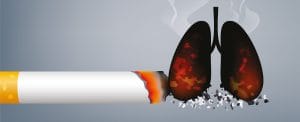Ninety harm reduction experts, including members of the CoEHAR, the Center of Excellence for the acceleration of Harm Reduction of the University of Catania, sent a letter to the European Commissioner for Health and Food Safety, Stella Kyriakides, urging the importance of applying risk reduction principles in public health policies to fight smoking addiction.
Catania, 16 October 2023 – From November 20th to the 25th, delegates representing the countries that signed the WHO Framework Convention on Tobacco Control (FCTC) will gather in Panama to discuss tobacco and nicotine policies at the tenth session fo the Conference of the Parties (COP10). As every two years, the WHO FCTC will decide on the public health guidelines for participating countries, including the EU.
As well known, the FCTC’s position in Panama will be to equate combustion-free products with conventional cigarettes, in stark contrast to the results of the entire scientific literature that prove the effectiveness of risk reduction principles in the fight against smoking.
“It is necessary to understand that many smokers, if not the majority, cannot or do not intend to quit smoking,” explains Prof. Riccardo Polosa, CoEHAR Founder. “And for these individuals, especially those with specific pathologies, the transition from conventional cigarettes to combustion-free devices may mean a significant improvement in terms of health”.
Virtuous countries (such as United Kingdom, Norway, Japan, and New Zealand) that have adopted harm reduction principles have all recorded a significant reduction in smoking prevalence, even among young people. “Any regulation on combustion-free products should strike a balance between the need to protect young people and the need to help adult smokers quit,” added Polosa.
The research program of the CoEHAR Center of Excellence investigated the effects of combustion-free products and their impact on health conditions, demonstrating with reliable data that these products lead to a significant risk reduction if compared to conventional cigarettes, help smokers quit, and ensure clinically relevant improvements in users with smoking-related pathologies.
As requested by experts in the letter: “Our hope is that, in light of scientific evidence, the FCTC and the European Union conduct a careful, balanced, and transparent review of the available scientific evidence regarding non-combustible products, compared to conventional cigarettes, to provide indispensable information for making decisions in the interest of millions of smokers.“




